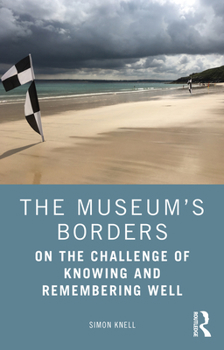The Museum's Borders: On the Challenge of Knowing and Remembering Well
The Museum's Borders demonstrates that museum practices are deeply entangled in border making, patrol, mitigation and erasure, and that the border lens offers a new tool for deconstructing and reconfiguring such practices.
Arguing that the museum is a critical institution for the operation of knowledge-based democracies, Knell demonstrates how they have been used in centrally controlled states, nationalistic settings and where the past remains contested and alive. Examining the way museums have been instrumentalised in acts of knowing and remembering, this book unpicks the museum's 'border work' using case studies from China, the US and Europe. Arguing for the museum to be understood as a critical institution for democracies struggling with unethical, nationalistic, post-fact political discourse, the book also considers how this model has application in other political systems and how the museum's borders can be arranged to better meet the needs of citizens and social cohesion.
The Museum's Borders
considers the significance of the museum for societies that wish to know and remember in ways that empower citizens and build cohesive societies. The book will be of great interest to students and academics engaged in the study of museums and heritage, cultural studies, anthropology, memory studies and history. It will also be useful reading for museum professionals who are interested in the museum's role in border making.Related Subjects
Art Arts, Music & Photography Political Science Politics & Social Sciences Reference




